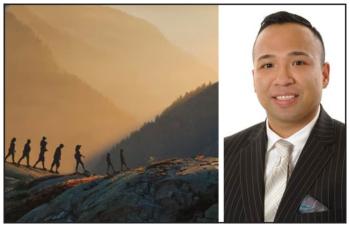Image Caption
Summary
Local Journalism Initiative Reporter
Windspeaker.com
A new report released Sept. 13 by Deloitte Canada says a whole of government approach is required to address environmental racism and to ensure that mitigation efforts don’t disproportionately affect marginalized communities.
“When faced with a climate event, marginalized, low-income people are often less able to adapt due to limited financial capital. Unlike people with higher incomes, marginalized populations may struggle to rebuild after climate catastrophes,” reads the 11-page report entitled Achieving climate equity in Canada: Mobilizing the whole of government.
This past spring and summer starkly underscore the impact climate catastrophes have had on Indigenous populations.
According to an Aug. 22 report from World Weather Attribution, which looked at the extreme fire-weather conditions Canada experienced from May to July 2023, wildfires disproportionately impacted Indigenous, fly-in and other remote communities because of vulnerabilities created by lack of services and “barriers to response interventions.”
Indigenous Services Canada (ISC) reported that, as of Sept. 8, there were 25 on-reserve First Nations affected by wildland fires, with nine on-reserve First Nations and more than 2,000 people impacted through evacuation.
ISC said that, so far, in 2023, 90 First Nations communities and 26,500 on-reserve First Nations members had been affected by orders to evacuate.
Métis populations were also impacted through evacuation orders and loss of homes.
“When we speak to the marginalized communities that are impacted by climate equity, the perspective (from them is) how environmental racism has prolonged those existing inequities and how it has an overlap with issues of poverty, lack of infrastructure, lack of resources and also economic wellbeing,” said Jason Rasevych, partner, National Indigenous Client Services Lead with Deloitte Canada.
Rasevych, an Anishinaabe from Ginoogaming First Nation, was a contributor tasked with reviewing the report and developing context from an Indigenous perspective.
Among the recommendations offered to address climate inequity is recognizing Indigenous-led environmental assessments as a best practice. To do so, the federal government needs to recognize First Nations, Métis and Inuit leadership structures as partners and establish government-Indigenous climate equity working groups that inform climate decision-making processes.
That is just one of five recommendations that stresses the need for a whole-of-government approach toward climate equity. Recommendations also call for federal, provincial or territorial, and municipal governments to establish “consistent and reliable” climate equity funding.
However, the report also notes that provinces and territories, which have primary jurisdiction over natural resources, and the federal government differ in their approaches to dealing with climate change, which makes a “cohesive plan difficult.”
Rasevych says one of the strengths of the report is that it’s been authored by Deloitte, a company that has “distinct experience” in working with the corporate sector to support businesses in adapting to new climate regulations.
The findings and recommendations in the report can be used as leverage by Indigenous communities, he says, in discussions with the federal or provincial governments, as well as corporations.
“There could be an opportunity for an Indigenous organization or an Indigenous climate led action group to take some of the report and put their own lens on some of the specific commentary. Or to further the focus. Or to take the report to government and say, ‘We’d like to strategically target on this recommendation stated here,’” said Rasevych.
Deloitte will promote the report in its own corporate sphere to existing clients and networks to get discussions going among executive and senior leadership on climate action and supporting equitable transition, he said.
As the report states, “To address climate injustice, the distinct experiences of communities that are historically and currently marginalized need to be better understood, including the barriers they face in accessing employment, education, health care, and social inclusion.”
The report also points out that relocation of Indigenous people during fires or floods impact them spiritually as well as economically, as they are “deeply connected to the land.” The result is increased risk of both physical and mental challenges.
In October, Deloitte Canada will be releasing another report. One of the focuses of that report will be economic empowerment and sovereignty of Indigenous people, which will include specific goals and recommendations to address those topics.
“Our focus (is) on working on integrating and supporting Indigenous leadership and Indigenous led initiatives,” said Rasevych. “There’s an intersection between climate action and reconciliation.”
To read the report go to https://www2.deloitte.com/ca/en/pages/strategy/articles/achieving-climate-equity-in-canada.html?id=ca:2or:3pr:4fy24_ct_just_transition_pov:5:6stra:20230912::the_wire__gzdabf03
Local Journalism Initiative Reporters are supported by a financial contribution made by the Government of Canada.

